LAHORE:
The illegal trade of kidney transplants continues to flourish in Pakistan, which officials believe is a result of the lack of implementation of the Transplantation of Human Organs and Tissue Act (THOTA), 2010.
Under THOTA, those involved in trafficking human organs or illegal kidney transplants can be punished with up to 10 years in jail and a fine of up to Rs1 million – but this rarely happens in reality.
“The act clearly states that both the recipient and donor involved in the commercial/illegal kidney transplant will be punished under the law ... Those foreigners who were arrested while getting illegal kidney transplants were allowed to go home because their cases were registered under the Pakistan Penal Code, not under THOTA. Had all those who were arrested been tried under THOTA, no foreigner would have dared to come to Pakistan for an illegal kidney transplant,” said an official of the health department, requesting anonymity.
The official provided an example of an Omani woman, Salmi Sulaman Shambha, who died in October 2010, during an illegal transplant in Lahore because of the use of unsterilised equipment. While the agent who managed the operation was arrested, the relatives of the woman were allowed to go back.
“Had they been tried under THOTA, they would have still been in jail and made an example for the international community,” the official added.
Officials at the National Human Organs Transplantation Authority, an organisation which monitors illegal kidney transplants in the country, told The Express Tribune that “as per our data compiled around a year ago, 14 out of a total of 42 illegal kidney transplant facilities were in Punjab.”
Syed Amin Bokhari, who was a police superintendent in Lahore Cantonment in 2011, busted a kidney transplant racket in July, 2011. He discovered during his investigation that doctors had agents in Pakistan who contacted agents in different countries. When a patient approached an agent in any foreign country, he would contact an agent in Pakistan. The local agent would then contact the doctor and start looking for a kidney that matches the patient from a list of potential donors.
Once a match was found, the foreign patient would come to Lahore, from where he would be taken to a house in the cantonment and operated on within a week.
Bokhari found out that 40 people were treated this way. The racket earned around $1 million as a result.
Head of the Department of Urology at Sheikh Zayed Hospital Professor Mohammad Usman Khan said that in the west, cadaveric operations were done for organ transplants, which provided a steady supply. On the other hand, he added, “We have many patients and few kidneys, so money gets involved and illegal kidney transplants occur.”
He further said that foreigners are charged $25,000 to $35,000 for an illegal kidney transplant.
Professor Khan explained that often the contractor pays less money than promised to the donors, adding that there are villages in Punjab where almost everybody had donated a kidney.
“Most of these donors are poor Christians who are exploited to sell kidneys to get some money,” he said.
Meanwhile, Human Rights Commission of Pakistan Chairperson Zohra Yusuf told The Express Tribune, “Private hospitals have invented sophisticated methods to violate this law. That is why some doctors, journalists and civil society activists have filed a petition in the Supreme Court to prevent the violation of THOTA.” Yusuf is one of the people who filed a petition in this regard in April.
Published in The Express Tribune, July 22nd, 2012.
COMMENTS (10)
Comments are moderated and generally will be posted if they are on-topic and not abusive.
For more information, please see our Comments FAQ

















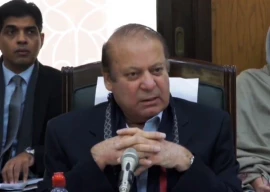
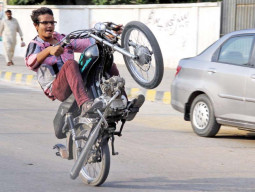
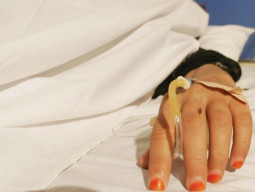
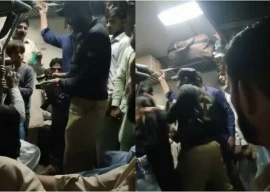
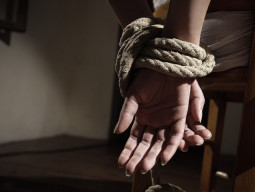












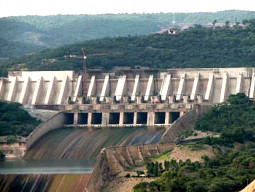
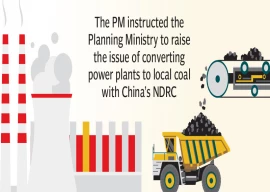








@Imran: I have been to many parts of Punjab in Pakistan but I think you need to visit Rawalipindi, Sialkot, Gujranwala, Faisalabad and even the smaller towns - not only Lahore. Then ask yourself the same question: why are all these cities more stable prosperous and developing compared to cities in the other provinces when the Punjab does not get any Federal support. By all means hate the CM of Punjab but you cannot deny the relative stability and development that has been going on under his leadership.
@Maria
Take a stroll outside Lahore to see real Punjab and its poverty and prosperity. For Khadim-e-Ala Punjab is name of the place called Lahore.
@Uza Syed: If you must know, the practice of illegaly selling organs is frowned upon in all parts of Pakistan including the Punjab. However it goes on in many parts of the Third World due to poverty. And yes the Punjab is by far the most stable and prosperous province in Pakistan so imagine how much poverty driven crime is going on in less stable and developed provinces than Punjab.
During the British Raj there was a thing called GOVERNMENT for the poor man, now it is a dream. This is the sad truth of azadi, corruption unlimited.
Congratulations to the big Khadim Sahib ------ his province is bringing prosperity to Pakistan. I just wonder why are they selling just one kidney and impeding our progress, if they would sell both this would help the economy florish twice as much and Pakistan would be a richer place.
I agree that whats happening is sad and illegal but what's the alternative option to this. My question here will be : Are there any of those Kidney transplant waiting list system existing here in Pakistan? Even if they are existing who is ensuring that there is no corruption in that area?.
@Optimistic: whats wrong with selling a kidney is simple, if these donors develop a post op infection, or later on develop diabetes, hypertension (both very common in pK) or problems with the remaining kidney, where are they going to come up with the money for treatment for that??? I can bet one lac rupees is going to finish very fast and will not have enough left over for health problems in later ages. That is why it is exploitative for the donor (all the loss is the poor mans but all the profit goes to the middlemen and doctor)
sad.
It is really tearful. One of my friends told me that these poor donors are paid only Rs. 100000 the rest is distributed among doctors and other high ranked officials These donors belong to very less privileged and lower strata of society. I beg my fellow countrymen to stand against the culprits and bring them to justice.